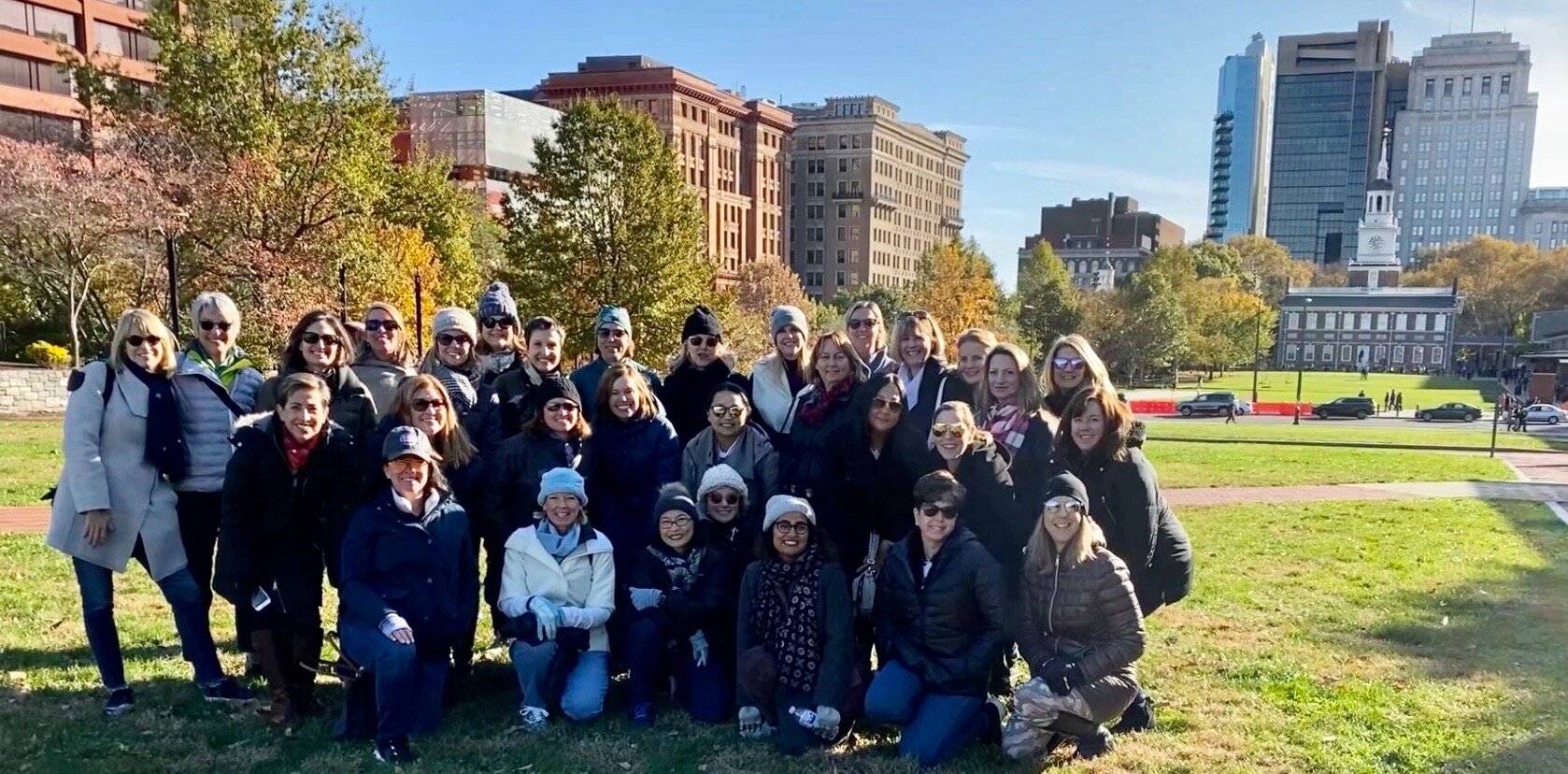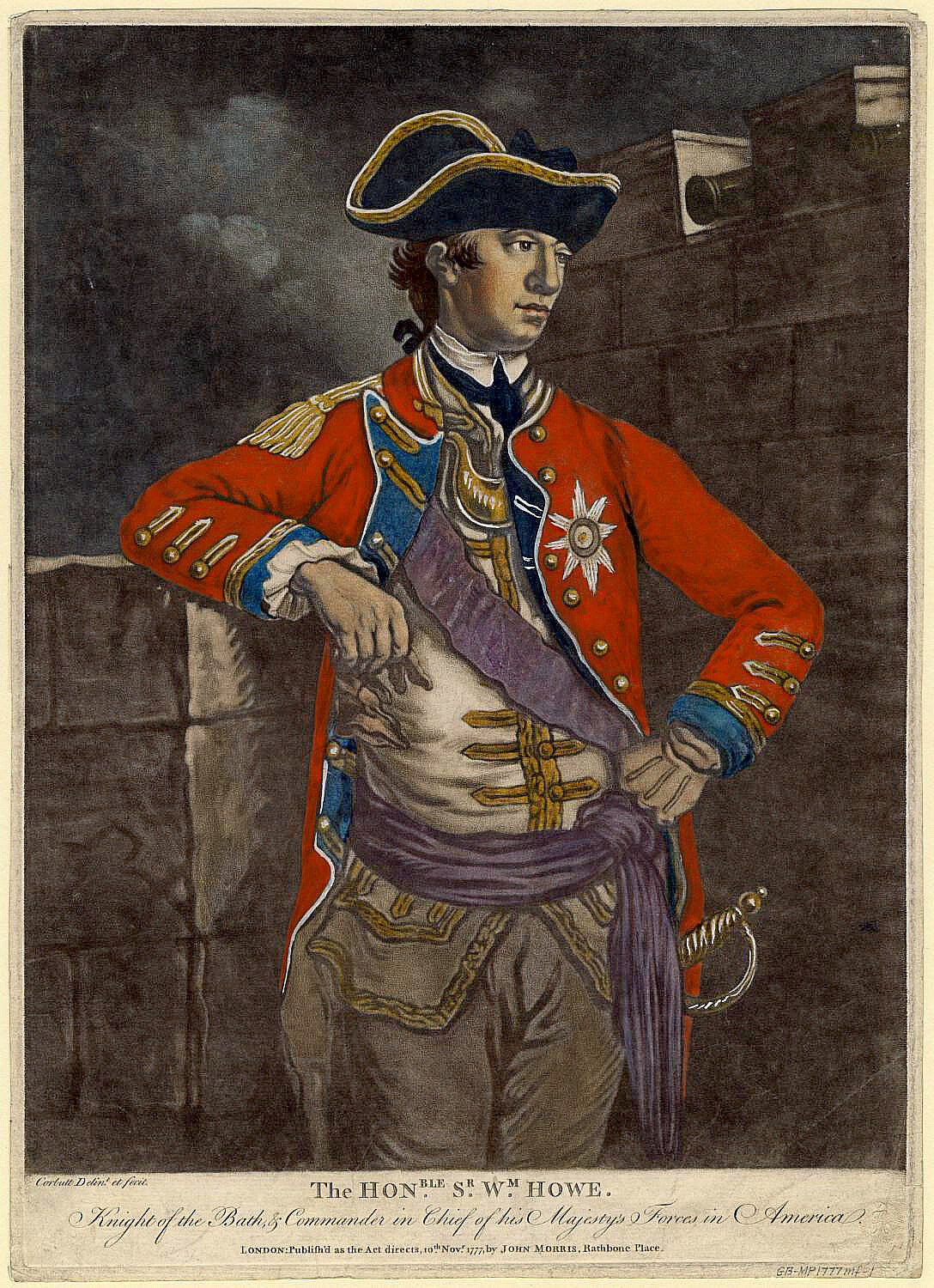My Most Unusual Philadelphia Tour Group Ever
It included relatives of both Commodore John Barry and General William Howe
In October 2019, Michele Cale, a former colleague of mine at Devon Direct Marketing & Advertising saw on Facebook that I had done a William Penn “Jane’s Walk” Tour.
Because she had friends coming to the U.S. from London and other places, Michelle asked if I would develop a tour for them.
Women Running the World in Philadelphia
The group was: Women Running the World. What they do: Run “for fitness, friendship and coffee in London.” And boy are they fit. After doing the 10-mile Rocky Run in Philly, 33 women, including a number from London, took a 2-hour tour of Philadelphia. They were delightful, interesting and interested.
Statue of Commodore John Barry at Independence Mall
While standing behind Independence Hall near the statue of John Barry, I told them how Commodore Barry and his men, in seven large rowboats (or barges), captured two British commercial vessels in the Delaware River on March 7, 1778 – during the nine-months that the British occupied Philadelphia.
Suddenly the Alert, a military schooner appeared.
Barry, who had a small gun on the front of his barge, prepared to attack.
Before he did, the Alert surrendered. The ship was taking three officers’ wives to join their husbands in Philadelphia, and the British commander did not want to risk their safety.
No one thought any crazy Colonials would be on the river. But Barry and his men were. They captured three ships, six officers and 130 soldiers, sailors and marines, says historian Tim McGrath in an article about John Barry, titled “I Passed by Philadelphia with Two Boats,” in Naval History Magazine.
In the end, Barry courteously freed the wives. He also sent the “huge cheese” and “Jar of Pickled Oysters” found in the Alert’s well-stocked pantry to General Washington.
A salacious subject
Next, because my contact had asked me to include something “salacious” in my tour, I told my visitors about British General William Howe’s “winter entertainment” in Philadelphia. That’s how Rick Atkinson refers to Elizabeth Lloyd Loring in his book, “The British are Coming.”
A color mezzotint of British General Sir William Howe.
The wife of one of General Howe’s officers, she was described as a “flashing blonde” and as an “illustrious courtesan” who enjoyed gambling, Atkinson says. British officers also referred to her as Delilah, Cleopatra and “the Sultana.”
Enjoying his comfortable life in Philadelphia with Mrs. Loring, General Howe seemed unwilling to go out and fight General Washington and his troops. That prompted some humorous lyrics in Philadelphia about General Howe and his close friend.
Among them:
From the American side:
Sir William, he, snug as a flea,
lay all this while a snoring,
Nor dreamed of harm
as he lay warm in bed with Mrs. Loring.
From the British side:
Awake, arouse, Sir Billy,
There’s forage in the plan,
Ah, leave your little filly,
And open the campaign.
Eventually, General Howe, who never did engage Washington again, returned to England. Before he left, though, his troops gave him an extraordinary and excessive celebration called The Meschianza on May 18, 1778.
My distinguished guests
After I finished telling the group my Philadelphia stories, one of the runners held up her hand and said, “I’m a relative of Commodore Barry’s.” Another said, “I’m a relative of General Howe.”
That’s been my most memorable tour group. I’ve never had another like it.
Sources:
Atkinson, Rick. “The British Are Coming: The War for America, Lexington to Princeton, 1775-1777.” New York: Henry Holt and Company, 2019.
Hopkinson, Francis, “Battle of the Kegs.” Bartleby.com/338/92.html.
McGrath, Tim. “I Passed by Philadelphia with Two Boats.'’ Naval History Magazine, 23, no. 3 (June 2009). https://www.usni.org/magazines/naval-history-magazine/2009/june/i-passed-philadelphia-two-boats.
McGrath, Tim. “John Barry: An American Hero in the Age of Sail.” Yardley: Westholme Publishing, 2010.
The Associated Press. 1776: The World Turned Upside Down: The Complete Season One. New York: Serial Box Publishing, LLC., 2018.


